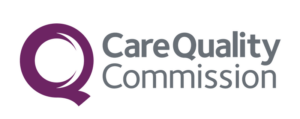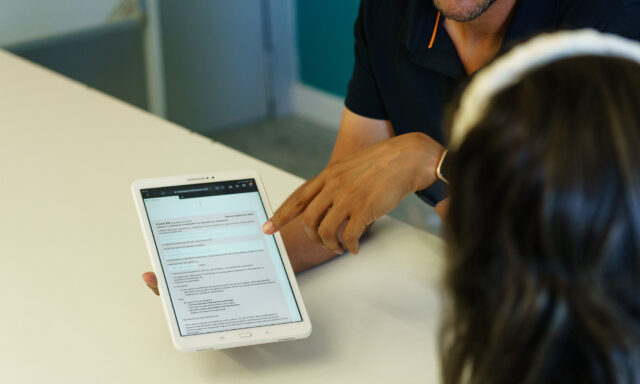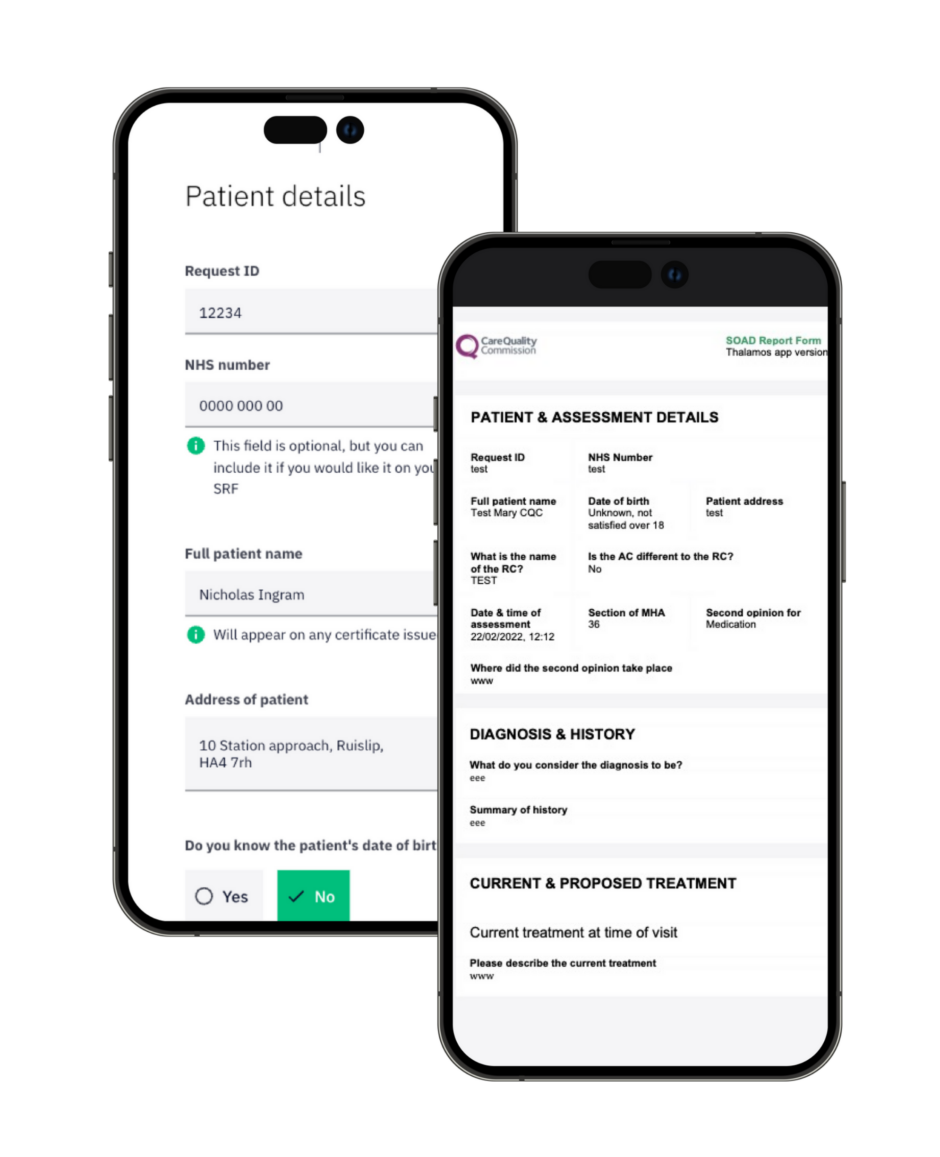Care Quality Commission
Supporting Second Opinion Appointed Doctors in completing their Mental Health Act assessments in a simple and efficient way.
Targeted support
Thalamos CQC was the first and continues to be the sole provider of digital Second Opinion Appointed Doctor (SOAD) forms and processes to the Care Quality Commission (CQC).
Brought in to focus during the COVID-19 crisis, Thalamos quickly developed a system to allow the SOAD service to continue operating and join up the admission, treatment and discharge care pathways through digital MHA statutory forms.
With more than 99% of Mental Health Trusts now having received SOAD forms from Thalamos, those Trusts using full Thalamos eMHA functionality can integrate the whole MHA pathway alongside their SOAD processes and statutory obligations.
The CQC is now in receipt of a much faster, intuitive, and auditable SOAD service.
Benefits
- Interoperable readiness
- Administrative and clinical time savings to support improved patient care, staff training and improved services
- Protection for patients and their data
- Improved partnership working across organisations
- Patient outcomes and treatment times
- Supporting full end-to-end mental health pathways
- Richer data accuracy to inform strategic decisions to improve patient outcomes and services
- Integrations with EPMA systems to improve compliance
- Clinical safety
- Simpler information governance
Case Study

CQC
In 2020, as part of the COVID-19 pandemic response, Thalamos digitised the CQC’s SOAD service, which safeguards the rights of patients detained under the Mental Health Act (MHA) who either refuse the treatment prescribed to them or are unable to consent to it. The implementation allowed the CQC to avoid suspending part 4 of the Mental Health Act during the COVID-19 pandemic, and has reduced the time between SOAD assessment and certificate receipt from 7 days to 15 hours.
What we delivered
For the national SOAD service, we deployed a bespoke section of our Thalamos Assess solution, which joins up the admission, treatment and discharge care pathways through digital MHA statutory forms.
SOADs can complete their assessment on any device, generating the required report and treatment certificates. These are then securely shared with any healthcare provider nationally who can access it instantaneously via an encrypted link to be administrated by all stakeholders – from doctors to ward staff and administration teams – with central oversight from the CQC team.


How we successfully achieved this
Thalamos produced a prototype T3 certificate in early 2020 to demonstrate the way in which this might work. The T3 prototype helped to remove SOAD concerns and familiarise them with the potential new system, while allowing them to provide feedback before a pilot went ahead.
A pilot was then initiated where close collaboration between the SOAD team, SOADs and Thalamos was key to the success of the pilot and subsequent rollout. All teams were heavily involved throughout, enabling the system to be fine-tuned and optimised at every stage of the process building to a complete digital SOAD pathway. This was further strengthened by their shared value to ultimately improve patient care.
Project outcomes and lessons
Since the pilot was launched, the time between the SOAD completing their assessment and the provider receiving their certificate has fallen from seven days to just 15 hours. End users (SOADs) have rated the new system 9/10 on usability, and more than 99% of providers have received a digital form through Thalamos.
Patient benefit
Thalamos has helped reduce access to treatment times from 7 days to 15 hours by connecting care professionals more effectively.
Operational Benefit
More than 99% of mental health providers, public and private, have received Mental Health Act documents via Thalamos.
Compliance benefit
Everyone receives a copy of the SOAD assessment on submission, including the provider who requested it and the SOAD Services team.
We believe that there should be no distinction or disparity between emergency physical and mental health care as exists currently.
